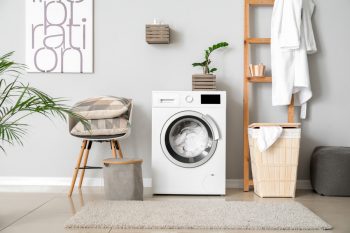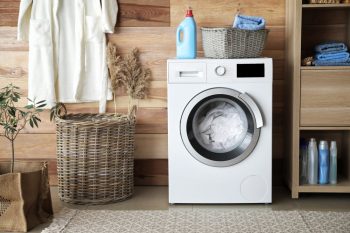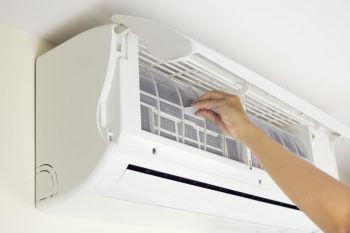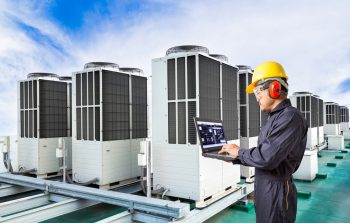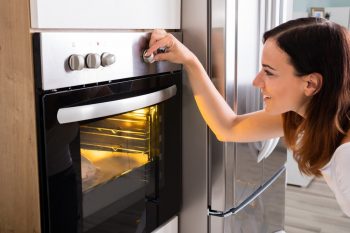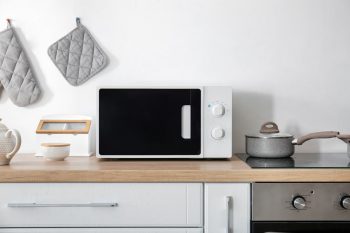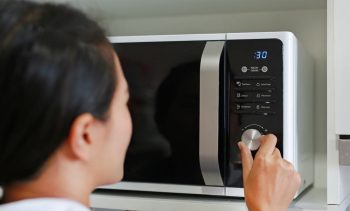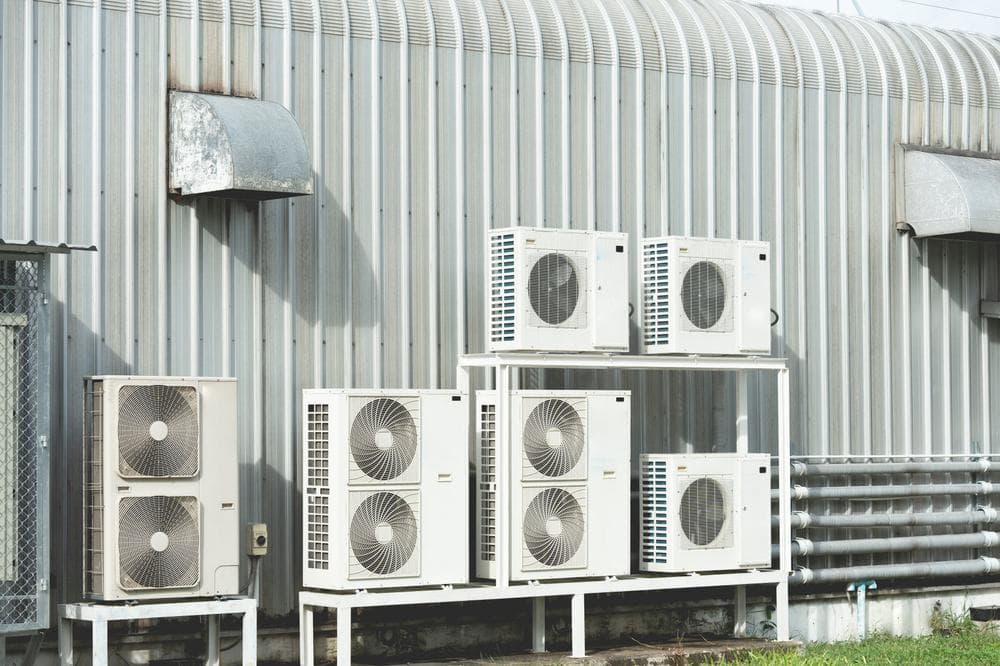
Air conditioning filters, or AC filters, play a crucial role in maintaining the efficiency of your air conditioning system and the quality of your indoor air. However, many homeowners are unsure about where these filters are located and how often they should be replaced or cleaned. In this comprehensive blog post, we will look into the common locations of AC filters in a residential HVAC system, why it’s important to know their location, and how to replace or clean them.
The location of AC filters can vary depending on your specific HVAC system. However, they are generally found in one of the following areas: in the blower compartment of the furnace, next to the furnace or air conditioning system air handler, in the return air duct or blower compartment before the return air reaches the air handler, or behind the return air grill on a wall in your home.
What are AC Filters and Their Primary Function?
AC filters, also known as air filters or HVAC filters, are essential components of an air conditioning unit. Their primary function is to clean the air that circulates through the heating and cooling system. They achieve this by trapping and holding various types of particulates and contaminants, such as dust, pollen, mold spores, fibers, lint, pet dander, and more. This process not only ensures better air quality for the occupants but also protects the air conditioning system from potential damage caused by these particles.
Maintaining clean air filters can significantly improve the efficiency of your air conditioning unit and lower its energy consumption. Regularly replacing or cleaning the filters is crucial, as clogged and dirty filters can reduce airflow, impair the heat-absorbing capacity of the evaporator coil, and hinder the overall performance of the air conditioning system.
Why is it Essential to Know the Location of My AC Filters?
Knowing the location of your AC filters is important for several reasons:
- Indoor air quality: AC filters help maintain good indoor air quality by trapping dust, pollen, pet dander, and other pollutants. A clean filter ensures cleaner, healthier, and fresher air in your home, which is particularly important for people with allergies or asthma.
- Energy efficiency: A clean filter allows your AC system to run more efficiently, as dirty filters can obstruct airflow and force the system to work harder, consuming more energy. Replacing a dirty filter with a clean one can lower your AC’s energy consumption by 5% to 15%.
- Preventing breakdowns and extending the lifespan of your AC unit: Dirty filters can cause dust and debris to accumulate in the AC unit, leading to wear and tear on the parts. Regularly changing the filter can prevent unnecessary damage and extend the life of your AC system.
- Cleaner home: A clean filter helps reduce the amount of dust and other particles circulating in your home, making it easier to keep your living space clean.
Knowing where your AC filters are located allows you to check, clean, or replace them as necessary. Manufacturers typically recommend checking and changing the AC filter every three months or more frequently if you have pets or live in a dusty environment.
Common Locations of AC Filters in a Residential HVAC System
The location of AC filters can vary depending on your specific HVAC system. However, they are generally found in one of the following areas:
- In the blower compartment of the furnace, usually located in a tray or door on the blower compartment.
- Next to the furnace or air conditioning system air handler, which is typically found in a basement, attic, or sometimes in the back of a closet.
- In the return air duct or blower compartment before the return air reaches the air handler.
- Behind the return air grill on a wall in your home.
AC filters are typically rectangular and made of cardboard or plastic, with a porous material such as fiberglass, cloth, or fine paper inside the frame. The filter’s dimensions, including length, width, and depth, are usually listed on the side of the filter.
Replacing or Cleaning Your AC Filters
Once you’ve located your AC filters, you may need to replace or clean them regularly to maintain your AC system’s efficiency and improve indoor air quality. The frequency at which you should replace or clean your AC filters depends on various factors such as the type of filter, usage, and environmental conditions. However, here are some general guidelines:
- For basic 1″ fiberglass air filters, it is recommended to replace them every 30 days.
- For 1″ pleated air filters, replace them every 30-60 days.
- For 2″ pleated air filters, replace them every 3 months.
- For 3″ pleated air filters, replace them every 6-12 months.
- For washable or permanent AC filters, clean them at least every three months.
If you have allergies, pets, or live in a dusty environment, you may need to replace or clean your filters more frequently. It’s a good idea to visually inspect your filters every month to determine if they need to be changed or cleaned.
Signs That Your AC Filter Needs to Be Replaced or Cleaned
There are several signs that indicate your AC filter needs to be replaced or cleaned:
- Dust and dirt around vents: If you notice an accumulation of dust and dirt around your AC vents, it could be due to a clogged air filter.
- The filter looks dirty or clogged: A visual inspection of the filter can reveal if it’s dirty or clogged and needs replacement.
- Rise in electricity bill: A clogged filter can cause your AC system to work harder, leading to increased energy consumption and higher bills.
- Worsening allergies: If you or your family members experience worsening allergy symptoms, it could be due to a dirty air filter affecting indoor air quality.
- Inefficient heating and cooling: A clogged filter can reduce the efficiency of your AC system, leading to inadequate heating or cooling.
Regular inspection and maintenance of your AC filters are necessary to ensure the optimal performance of your HVAC system and maintain good indoor air quality. Knowing where your AC filters are located is the first step towards achieving this.
In conclusion, AC filters play a crucial role in maintaining the efficiency of your HVAC system and the quality of your indoor air. Knowing their location allows you to check, clean, or replace them as necessary, ensuring a healthier and cleaner indoor environment for you and your family.
Frequently Asked Questions
What type of AC filter is best for my home?
The best type of AC filter for your home depends on your specific needs and circumstances. For example, if you have family members with allergies or asthma, you might want to consider a high-efficiency particulate air (HEPA) filter, which can trap 99.97% of particles that are 0.3 micrometers in diameter. However, these filters can restrict airflow in some systems. Pleated filters are a popular choice as they provide a good balance between cost and efficiency, trapping 80-90% of air particles. Fiberglass filters are the cheapest option but they only trap 10-40% of air particles. It’s best to consult with a HVAC professional to determine the best filter for your home.
How often should I check my AC filters?
It’s generally recommended to check your AC filters once a month. Regular checks allow for timely replacements or cleanings, ensuring your AC system runs efficiently and maintains good indoor air quality.
What happens if I don’t change my AC filter?
If you don’t change your AC filter, it can become clogged with dust and other particles. This can restrict airflow, forcing your AC system to work harder and consume more energy. It can also lead to dust and debris accumulating in the AC unit, causing wear and tear on the parts. Over time, this can lead to breakdowns and reduce the lifespan of your AC system. Moreover, a dirty filter can also affect the quality of your indoor air, potentially triggering allergies and other respiratory problems.
Can I clean and reuse my AC filter?
Whether you can clean and reuse your AC filter depends on the type of filter you have. Some filters, like fiberglass filters, are disposable and must be replaced when they become dirty. Others, like some types of pleated filters, can be cleaned and reused. However, cleaning should be done carefully to avoid damaging the filter. Always check the manufacturer’s instructions before attempting to clean your AC filter.
Can a dirty AC filter cause my AC to freeze up?
Yes, a dirty AC filter can cause your AC to freeze up. When the filter is clogged, it can restrict the airflow to the evaporator coil, causing it to become too cold and freeze. This can lead to a breakdown of your AC system and potential water damage to your home. If you notice ice on your AC unit, it’s important to check and replace the filter if necessary and contact a HVAC professional.

